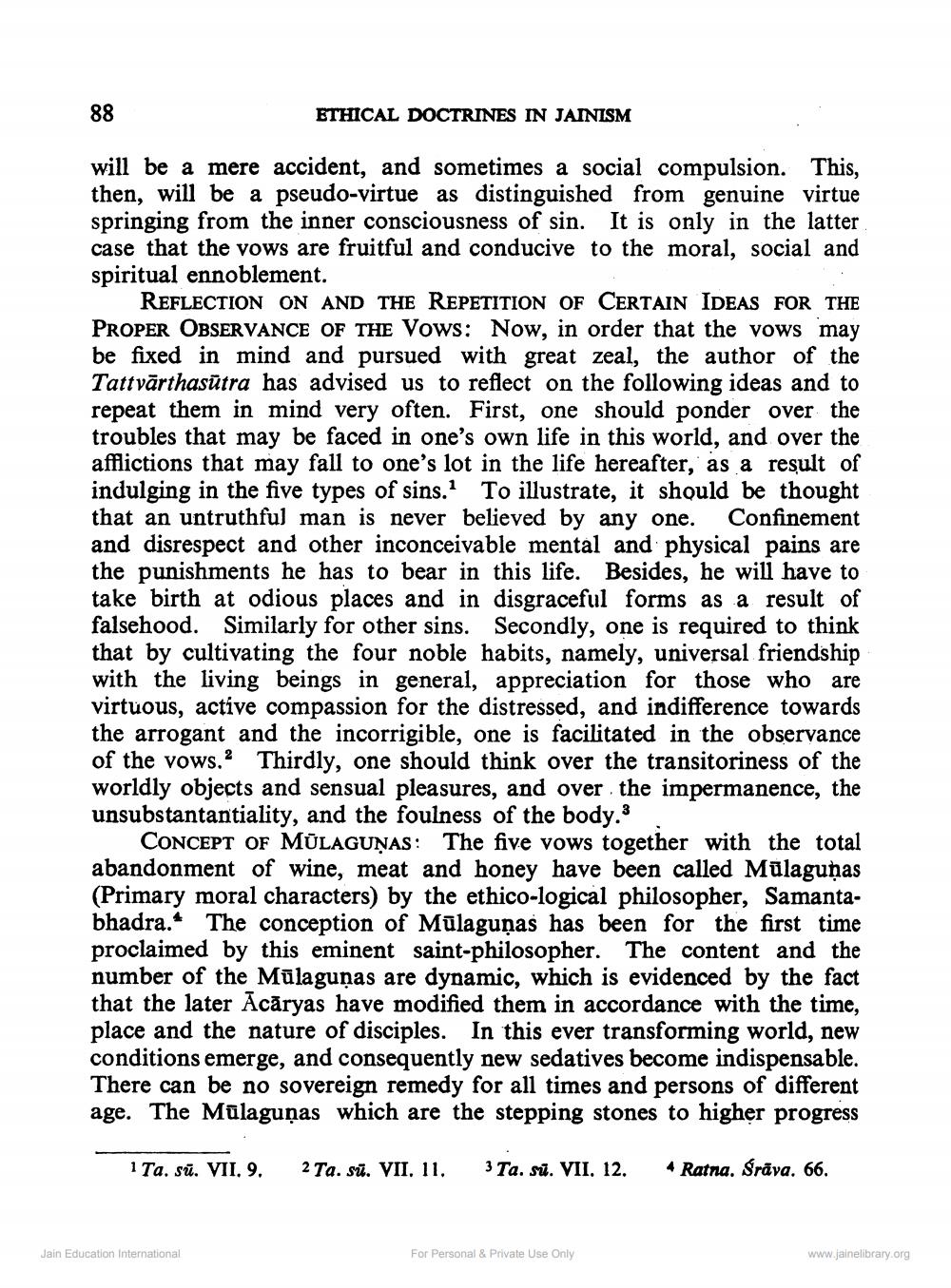________________
88
ETHICAL DOCTRINES IN JAINISM
will be a mere accident, and sometimes a social compulsion. This, then, will be a pseudo-virtue as distinguished from genuine virtue springing from the inner consciousness of sin. It is only in the latter case that the vows are fruitful and conducive to the moral, social and spiritual ennoblement.
REFLECTION ON AND THE REPETITION OF CERTAIN IDEAS FOR THE PROPER OBSERVANCE OF THE Vows: Now, in order that the vows may be fixed in mind and pursued with great zeal, the author of the Tattvārthasūtra has advised us to reflect on the following ideas and to repeat them in mind very often. First, one should ponder over the troubles that may be faced in one's own life in this world, and over the afflictions that may fall to one's lot in the life hereafter, as a result of indulging in the five types of sins. To illustrate, it should be thought that an untruthful man is never believed by any one. Confinement and disrespect and other inconceivable mental and physical pains are the punishments he has to bear in this life. Besides, he will have to take birth at odious places and in disgraceful forms as a result of falsehood. Similarly for other sins. Secondly, one is required to think that by cultivating the four noble habits, namely, universal friendship with the living beings in general, appreciation for those who are virtuous, active compassion for the distressed, and indifference towards the arrogant and the incorrigible, one is facilitated in the observance of the vows. Thirdly, one should think over the transitoriness of the worldly objects and sensual pleasures, and over the impermanence, the unsubstantantiality, and the foulness of the body.3
CONCEPT OF MŪLAGUŅAS: The five vows together with the total abandonment of wine, meat and honey have been called Mülaguņas (Primary moral characters) by the ethico-logical philosopher, Samantabhadra.* The conception of Mūlagunas has been for the first time proclaimed by this eminent saint-philosopher. The content and the number of the Mūlagunas are dynamic, which is evidenced by the fact that the later Acāryas have modified them in accordance with the time, place and the nature of disciples. In this ever transforming world, new conditions emerge, and consequently new sedatives become indispensable. There can be no sovereign remedy for all times and persons of different age. The Malaguņas which are the stepping stones to higher progress
1 Ta. sū. VII. 9.
2 Ta. sū. VII. 11.
3 Ta. sū. VII. 12.
Ratna. Srāva. 66.
Jain Education International
For Personal & Private Use Only
www.jainelibrary.org




